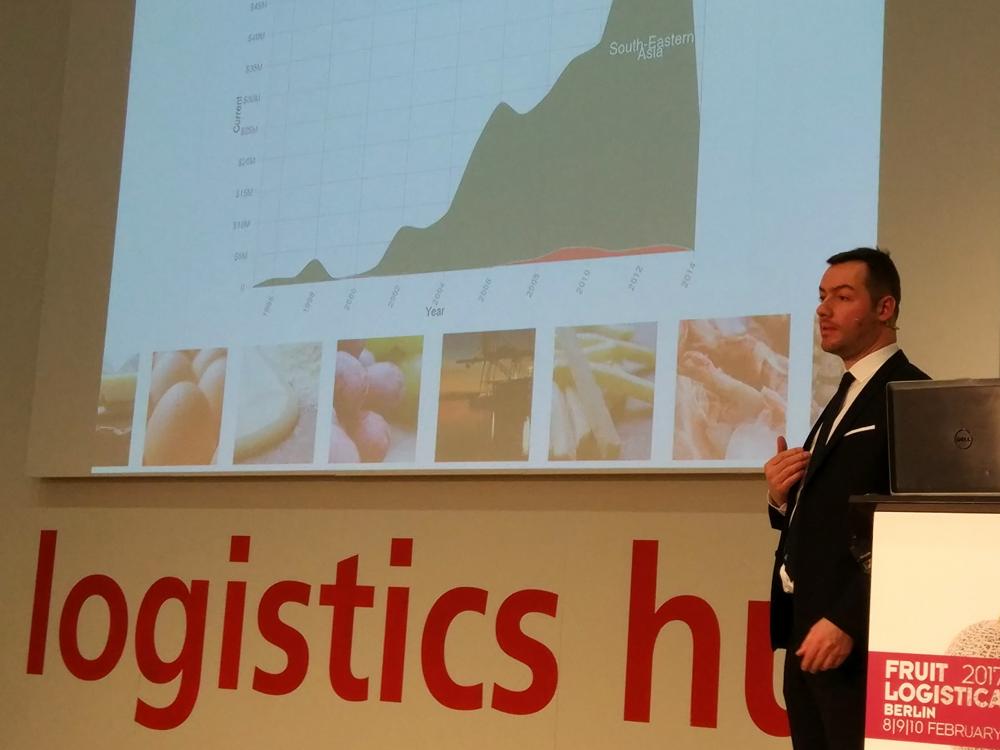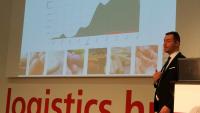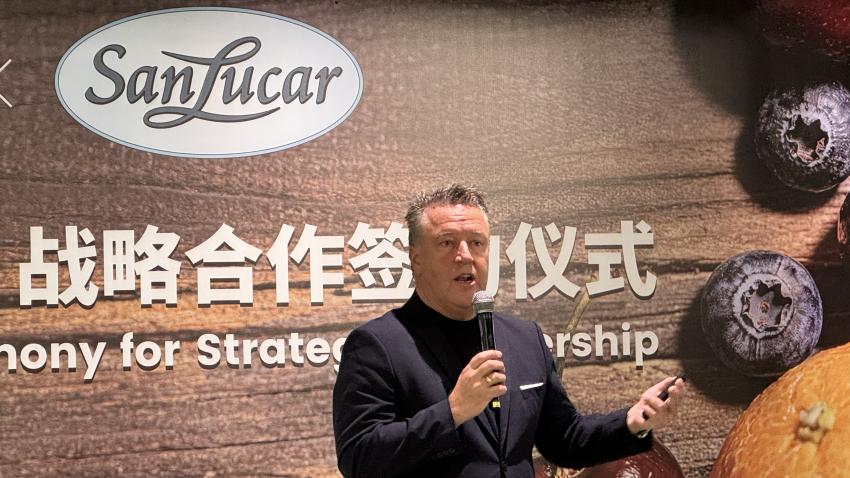You are here
Back to topData Integration a Must for Shipments to China

Looking at the graphs representing fruit exports to China, one can’t help but be struck by the extent of the growth, with lines running almost vertically off the charts. Whether one is talking about grapes, citrus fruit or bananas, the picture is the same. To get all of this produce across the seas to the port of destination in conditions that meet the standards required by the Chinese authorities and acceptable to Chinese consumers is no easy feat.
Produce Report interviewed Steve Alaerts, Director of Sales and Marketing for Foodcareplus, to understand the challenges and requirements of a successful fresh produce logistics operation for China. It turns out centralising aspects that would normally be outside the remit of just one logistics company and the aggregation and integration of data are both key to successful logistics operations and are soon to become the industry standard.
China’s vertiginous transformation from a developing country to an economic powerhouse, has had a series of consequences that have shaped the market for fresh produce in the country. The high levels of pollution that accompany such rapid industrial growth, along with a series of shocking food scandals have sapped public confidence in locally sourced produce. While on the positive side a burgeoning middle and upper middle class has emerged, which now possesses the purchasing power to buy imported fruit at premium prices. The particular concern for food safety means that these consumers also expect higher quality goods than say in Europe, where according to Oliver Huessmann, CEO of Fruitconsulting, “5 or 6 large supermarket groups have reared consumers to demand low prices and expect only standard quality, albeit high standards that ensure food safety, but not high quality.” What’s more China’s demanding phytosanitary requirements and the complexity of the country’s rules and regulations on imports, means that exporting fresh produce to China requires attention and care if one is not to lose a consignment. Together these factors make China a particularly demanding destination for logistics companies.
Foodcareplus, which specialises in logistics for the food industry, has adapted its processes to the requirements of exporting to China, “the set up that we have is a little bit different because Chinese consumers are very concerned with the origin of the product, how it has been packed, food safety and health of course,” said Alaerts.
This has led the logistics company to assume direct oversight and control over those parts of the process that affect the quality of the produce and adherence to AQSIQ and customs requirements, as the sales manager for Foodcareplus explains, “we have our own system of inspecting all means of transport before the product is actually loaded, then we carry out a pre-inspection survey before we ship the product out…so usually all the produce that is bound for China already has a huge commodity passport, which includes data from temperature and location devices. This is integrated with the shipping database.” This means the company has data on the conditions of the produce throughout the journey.
According to Alaerts, the industry has always worked in boxes. However modern technology seems to have sounded the death knell for this way of operating, with data integration as the general direction that logistics is destined to move in. “In Antwerp we are launching a concept called ‘Nxtport’ - a data cloud solution where all the stakeholders in the logistics industry will insert their data. It means that if you ship a container with, for example, Belgian pears to Shanghai, when that vessel moves out of the port of Flushing, the location and temperature data is already being transmitted through the data cloud, so that the Chinese importer or retailer that is sourcing directly from the growers will already be able to see what is going on with the product.”
This of course is something that Chinese consumers are very interested in, and would also help to make the industry become more efficient and significantly reduce food wastage, by 1.3 billion tons according to estimates cited by Alaerts, who concluded, “there is a lot of work that needs to be done in the industry, but we believe logistics 4.0 will be the data era.”













Add new comment